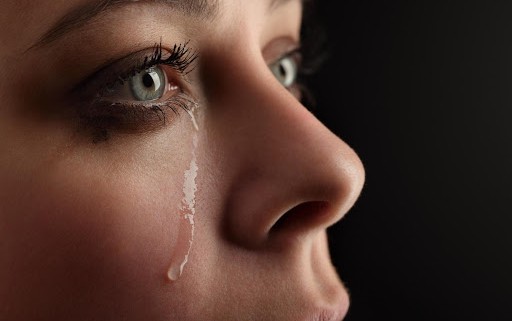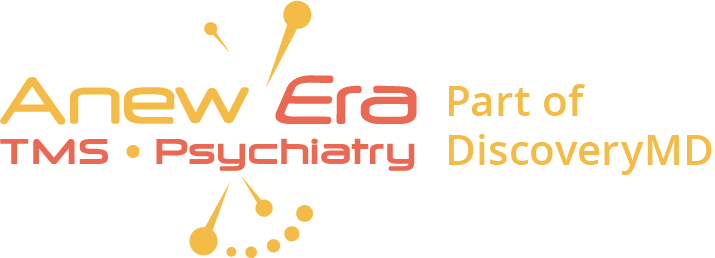Options When Antidepressants Don’t Work
Major depressive disorder can hit hard, its debilitating symptoms boring in and impacting every facet of a person’s life. This severe depression bears a distinct difference from the occasional bout of the blues following a difficult life event, such as a romantic breakup, loss of a job, or the loss of a loved one. While those events are hard to live through, in most cases we humans eventually rebound and our moods stabilize without needing any outside intervention.
Major depression is a completely different animal. The symptoms may arise unexpectantly, not tied to any particular event. One day you just feel numb, like there is a thick brick wall built up around you. You have zero gumption, preferring the safety of your bed to the effort it would take to get ready for work. Just the thought of trying to interact with coworkers feels like an insurmountable chore. Even taking a shower is a huge undertaking. You while away the days like this, feeling glum and hopeless, but without any clue as to why.
Depression remains a mystery to the mental health and medical communities. Although factors such as genetics, brain chemistry, life events, and personality traits are known potential causes, there is much that is still not understood. Like a stealthy invader, depression can sneak in and upturn your entire life. Whether it has crept in incrementally or arrives one day unannounced, depression is an unwelcome and serious mental health disorder that requires professional intervention.
Depression Treatment
If someone finds themselves struggling with the symptoms of depression for more than two weeks then it is time to see a doctor. The first stop should be a primary care provider who can conduct a thorough physical examination and lab panel. There are some medical conditions that can cause symptoms of depression, such as thyroid malfunctions, neurological conditions like Parkinson’s and multiple sclerosis, HIV, West Nile virus, Lyme disease, hepatitis C, and pancreatic cancer.
Once a health condition is ruled out, the physician will refer the individual to a psychiatrist for further assessment. During the initial consultation the doctor will gain a general perspective of the symptoms, the history of the depressed mood, whether there is a co-occurring substance use disorder, if there is a co-occurring mental health disorder such as anxiety, and whether the individual has recently experienced a profound or traumatic event.
The conventional treatment protocol for an individual diagnosed with major depressive disorder (MDD) is antidepressant drug therapy combined with psychotherapy. The psychiatrist will select the antidepressant that they determine to be the best fit for the patient’s specific diagnosis, and ask the patient to trial the drug for about a month. Concurrently, the patient will be assigned therapy sessions during which underlying emotional issues can be identified and processed with the guidance of the psychotherapist or psychiatrist.
What Happens if the Antidepressants Don’t Work?
For about half of patients with MDD this standard treatment approach is successful in helping to mitigate the symptoms of depression. The antidepressant has been helpful in rebalancing brain chemistry and the therapy has helped the individual work through some difficult emotional issues.
However, for the remaining 50% of patients with MDD, these measures did not work. They remain stuck in a state of deep depression, now frustrated further because, after trialing multiple antidepressants, they were unable to find relief from symptoms. These individuals are considered to have medication-resistant MDD. For these patients, learning about alternative treatment options when antidepressants don’t work is the next order of business.
Treatment Options When Antidepressants Don’t Work
A relatively recent entry into the field of depression treatment is called transcranial magnetic stimulation, or TMS. Cleared in 2008 for the treatment of medication –resistant MDD, TMS has demonstrated itself to be a highly effective and well tolerated alternative treatment, as well as a complimentary treatment, to antidepressants.
TMS therapy involves harnessing powerful magnetic fields and directing them through a coil over the patient’s scalp. The patient is fully alert while the therapy is administered, as there is no need for sedation. As the patient relaxes comfortably, the repetitive magnetic pulses penetrate the scalp and target the left prefrontal cortex, or the mood regulation region of the brain. The session takes about 40 minutes, and there is no recovery time needed. The patient is free to drive immediately following this outpatient session and return to their daily activities. The usual TMS treatment plan is for a period of 4-6 weeks.
How TMS Therapy Can Help Medication-Resistant Depression
For someone who believes they are out of options when antidepressants don’t work, TMS therapy provides renewed hope. TMS is a brain stimulation therapy, meaning it is designed to stimulate neurons located in the mood regulation region, or limbic system, in order to jumpstart the underactive or dormant brain cells that are often featured in MDD patients.
When the magnetic fields travel through the coil, electrical currents are induced. These currents reach a depth of 2 cm into the brain tissue and activate the lazy neurons. Over the course of treatment the individual’s brain chemistry is recalibrated, which can lead to several areas of improvement. After about ten sessions, or after the second week of treatment, patients begin to notice they are sleeping better at night. Over the ensuing weeks, they experience better focus and concentration in their daily lives, and more energy. By the end of the treatment plan, patients can experience overall better mood and exude a more positive demeanor.
TMS therapy can also help with co-occurring anxiety. Many people with MDD also suffer with a second mental health disorder, such as anxiety or PTSD. It has been found that TMS therapy also positively impacts these secondary conditions as well. So, if you thought, because the antidepressants failed to help you, that you were out of options, exploring TMS as a viable treatment option is a worthy endeavor.
Anew Era TMS & Psychiatry Provides State-of-the-Art TMS Therapy Southern California
Anew Era TMS & Psychiatry is a leader in the field of depression treatment with TMS therapy. TMS treatment provides promising options when antidepressants don’t work, restoring hope that the darkness of depression will be lifted. With several offices to serve Southern California, Anew Era TMS & Psychiatry can change your life. For more information or to learn if you are a candidate for this exciting depression treatment option, please contact Anew Era TMS & Psychiatry today at (888) 503-1549.










